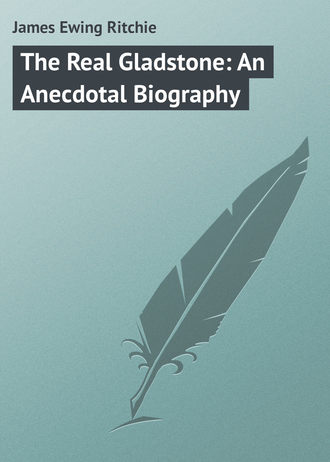
The Real Gladstone: An Anecdotal Biography
I conclude this rapid survey with a quotation from Mr. G. W. E. Russell’s ‘Gladstone’: ‘In order to form the highest and truest estimate of Mr. Gladstone’s character, it is necessary to see him at home. But to do this is a privilege accorded necessarily to the few. The public can only judge him by his public life; and from this point of view it may be that the judgment of one of his colleagues may be accepted when he said: “The only two things Mr. Gladstone really cares for are the Church and finance.”’ What may be the verdict of history on him as a statesman it is impossible to foretell. In England, at any rate, no man has been a power so long. To most of us, to borrow from Shakespeare, he seems to bestride this narrow world like a Colossus. He has done much to help the advent of the new democracy, but it is as a commercial reformer, apparently, that Mr. Gladstone will be best known to future ages. In that capacity he produced marvellous changes. By making paper cheap he gave an impulse to the publishing trade, of which we have not yet seen the end. By the Methuen Treaty it was deemed a heavy blow was struck at Portugal. Under Mr. Gladstone, with the aid of Richard Cobden, that treaty was got rid of, the light wines of France were introduced, the social habits of the country were changed for the better, and the commerce of the country largely increased. The anomalies of the navigation laws were perhaps more marvellous than those of the commercial treaties. Mr. Gladstone had much to do with removing those anomalies, and the result was a marvellous increase in the growth of British shipping and foreign commerce, and the revenue increased, as Mr. Gladstone stated, by leaps and bounds; and while the working man has secured better wages, his power of purchase has been largely increased. Alas! poverty, selfishness, ignorance are still at work in our midst, and Utopia seems as far off as ever.
On May 19 the end came, and all over the world, to the grief of the nation, it was known that Mr. Gladstone was no more.
Parliament unanimously voted him a Public Funeral in Westminster Abbey, where he was laid to rest May 28, 1898.







